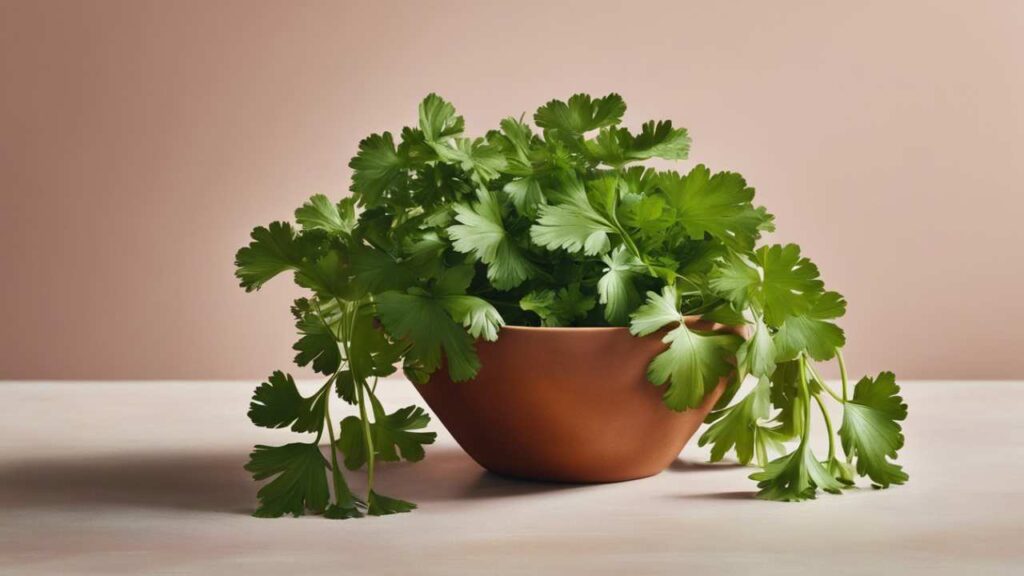The Mystery of the Soapy Taste of Coriander for Some of Us
Coriander is a highly appreciated herb in many cuisines around the world. However, for some people, it has an unpleasant soapy taste. Why is there this difference in taste perception? Let's delve into the fascinating world of genetics and taste buds to understand this phenomenon.
Genetics, a Key to Understanding Taste Perception
Genetics plays a crucial role in how we perceive flavors. Indeed, some people have a different genetic makeup that leads them to perceive the flavor of coriander, and other ingredients, as soapy. According to Inna Husain, an ENT doctor, this difference is due to the variability of our genes and taste buds. Thus, coriander can be a true delight for some, while it is unpleasant for others.
It is interesting to note that this difference in taste perception is not limited to coriander. Other foods, such as Brussels sprouts or celery, can also be perceived differently depending on our genetic heritage. This highlights the importance of genetic diversity in our appreciation of flavors and aromas.
Super Tasters, Extraordinary Taste Buds
“Super tasters” are individuals with a higher number of taste receptors in their mouths. This particularity allows them to more easily detect specific compounds present in foods like coriander. Thus, they are more sensitive to flavors and aromas, which can explain why coriander tastes soapy to them.
Super tasters represent only a small portion of the population, but their heightened taste sensitivity can have consequences on their diet. For example, they may be more reluctant to consume bitter foods, such as cruciferous vegetables, or spicy foods. This sensitivity can also lead them to enjoy sweet and salty flavors more.
Adapting Your Cooking for Sensitive Palates
If you are one of the people for whom coriander tastes soapy, there are alternatives to enjoy the flavors of this herb without experiencing the discomfort. You can, for example, replace coriander with flat-leaf parsley, mint, or basil in your recipes. These herbs will bring a touch of freshness and flavor without the unpleasant taste associated with coriander for some palates.
It is also possible to adapt recipes by reducing the amount of coriander used, or by combining it with other herbs to mellow its taste. The important thing is to find a balance that suits your taste buds and those of your guests.
- Replace coriander with flat-leaf parsley, mint, or basil
- Reduce the amount of coriander used in recipes
- Combine coriander with other herbs to mellow its taste
In Conclusion: Celebrating Taste Diversity
The perception of coriander tasting soapy for some people is a fascinating example of the genetic and taste diversity that exists among us. This diversity is something to celebrate, as it allows us to explore and appreciate a multitude of flavors and aromas. By adapting our recipes and taking into account everyone's taste preferences, we can create unique and flavorful culinary experiences for all.
So, the next time you encounter someone who doesn't like coriander, remember that it is the genetic and taste diversity that makes our culinary world so exciting and varied. And who knows, you may discover new flavors and combinations by seeking alternatives to coriander to satisfy all palates.
Why does coriander taste soapy to some people?
Coriander can taste soapy to some people due to their genes. Individuals with a variation of the OR6A2 gene are more sensitive to aldehydes, chemical compounds present in coriander, which can give it an unpleasant soapy flavor.
Does everyone perceive the soapy taste in coriander?
No, not everyone perceives the soapy taste in coriander. This perception depends on an individual's genetics and sensitivity to aldehydes. Some people enjoy the taste of coriander, while others find it unpleasant.
Can you get used to the taste of coriander if you are sensitive to it?
It is possible to get used to the taste of coriander, even if you are sensitive to it. By gradually incorporating it into your diet and combining it with other flavors, some people may eventually come to appreciate its taste.

Maximilien Descartes est un rédacteur chevronné spécialisé dans les FAQ, avec plus de quinze ans d’expérience. Diplômé en journalisme de l’Université de Paris-Sorbonne, il a commencé sa carrière en écrivant pour diverses publications en ligne avant de se concentrer sur la création et la gestion des FAQ. A travers son travail, il s’efforce de fournir des informations claires, concises et pertinentes pour faciliter la compréhension du lecteur. Lorsqu’il n’est pas en train de peaufiner les moindres détails d’une FAQ, vous pouvez le trouver en train de lire le dernier roman de science-fiction ou de parcourir la campagne française à vélo.
